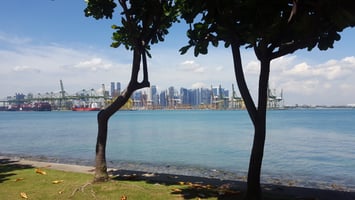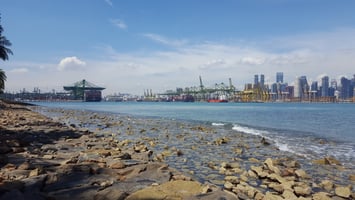ELECTRONICS COMPANIES IN THE REGION STILL LAG CHINA: REPORT
Kusu News 22-Jan-2021
19-Jan-2021 Intellasia | BusinessTimes |
The “Asean Quad” may have been key beneficiaries of ongoing supply chain shifts into the region, but they will still be hard-pressed to compete with mainland China. That’s as Malaysia, the Philippines, Thailand and Vietnam remain focused on low to mid-value-added segments, according to a new report from ANZ on Wednesday.
BIDEN STATE PICK BACKS TRUMP'S 'TOUGHER APPROACH' ON CHINA
19-Jan-2021 AFP
Antony Blinken, President-elect Joe Biden's nominee to be secretary of state, said Tuesday he agreed with the tougher US stance on China under Donald Trump that the outgoing leader hailed in his farewell remarks.In confirmation hearings, Biden's nominees vowed to keep up pressure on China on trade and human rights, despite previous calls to see areas of cooperation."I also believe that President Trump was right in taking a tougher approach to China," Blinken told the Senate Foreign Relations Committee.
MEASURING THE IMPACT OF COVID-19 ON ECONOMIC GROWTH IN ASEAN
18-Jan-2021 Business Times
The COVID-19 pandemic has prompted governments of ASEAN countries and the rest of the world to take extraordinary measures to contain the virus and save lives, including lockdowns and social distancing measures. Several weeks of strict lockdowns or the combined effect of the COVID-19 outbreak and the social distancing measures have triggered an economic recession. But which ASEAN economies have been severely hit by COVID-19?The impact of COVID-19 on economic growth is measured by the difference of estimated 2020-2021 growth rates in real gross domestic product (GDP) before and during the pandemic. Such data are obtained from the International Monetary Fund (IMF), which projected growth rates of economies in October 2019 (before the pandemic) and October 2020 (during the pandemic). The difference of estimated growth rates reveals that the pandemic has reduced the average growth rate of ASEAN-10 economies by 7.8 percentage points in 2020.
HONG KONG AND CHANGI LOSE STATUS AS ASIA’S BUSIEST AIRPORTS
Hong Kong no longer has the busiest airport for international traffic in Asia after the coronavirus pandemic wiped out travel, leaving South Korea’s Incheon International Airport in top spot, albeit with drastically fewer numbers than previous years. Hong Kong International Airport handled 8.84 million passengers in 2020, an 88% plunge from the previous year. That sent it down two spots to third, below Seoul’s Incheon and Singapore’s Changi Airport in second. Incheon processed 11.96 million passengers last year, leaving it on top of the pile for the first time ever. Changi handled 11.8 million.
-1.jpg?width=146&height=50&name=Kusu%20(1)-1.jpg)



